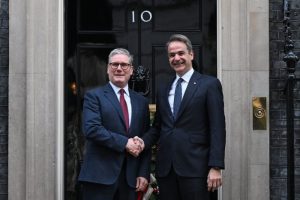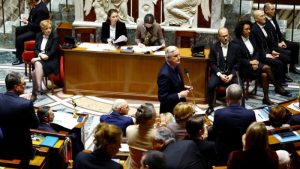‘Question loan charge tax officials under oath’
Unlock the Editor’s Digest for free
Roula Khalaf, Editor of the FT, selects her favourite stories in this weekly newsletter.
UK tax officials should be questioned under oath as part of a new independent review into a crackdown on historic tax avoidance, known as the loan charge, MPs across the political spectrum have said.
The loan charge, which came into force in 2019, aimed to clamp down on the historic use of loan-based tax avoidance schemes. However, the measure has become one of the most controversial tax policies enacted in the UK for decades and has been linked to the suicides of at least 10 people. In January, MPs across Parliament lined up to attack the policy, with some saying it had echoes of the Post Office scandal.
In opposition, Rachel Reeves, who is now chancellor, promised an independent review of the policy following criticisms from campaigners that a previous government review was limited in scope and influenced by HM Revenue & Customs.
Documents released with last month’s Budget confirmed “a further independent review of the loan charge, to help bring the matter to a close for those affected while ensuring fairness for all taxpayers”.
The announcement was welcomed by campaigners and MPs on the loan charge and taxpayer fairness group all-party parliamentary group (APPG), a cross-party body with more than 100 MPs. But the MPs said strict measures were needed ensure the new review is effective, such as it being able to question public officials under oath — an unusual requirement for HMRC staff — and be equipped with personnel from outside government.
Karl Turner, the Labour vice-chair of the APPG, said “unlike the 2019 review commissioned by the previous Conservative government,” there needed to be “a genuine review or inquiry, properly set up and with clear independence from HMRC and the Treasury”.
He added: “It is vital that public officials are this time obliged to give evidence on the record and under oath, including former ministers who rushed the loan charge through Parliament, failed to challenge HMRC and refused to change course even when 10 people had taken their own lives.”
From about the year 2000, tens of thousands of people across a range of sectors used schemes that involved being paid in loans via offshore trusts. These were often recommended by professional advisers, agencies or employers, with many unaware that the arrangements were considered vehicles for tax avoidance by HMRC.
The introduction of the loan charge in 2019 originally required those affected to pay tax on up to 20 years of income in one financial year, creating unaffordable demands for some. But after a public outcry at the distress the policy caused and a review commissioned by the government, concessions were made. These included making it easier for people to pay the money back by spreading payments and roughly halving the period for which the loan charge applied.
Steve Packham of the Loan Charge Action Group, a campaigning body, added: “As has been well documented, the 2019 review commissioned by the last government was neither independent, nor actually a review of the whole issue, with a remit and structure set by the Treasury and HMRC, both of which were exposed as being involved all the way through.
“We now need a comprehensive review or inquiry that looks at the whole loan charge scandal and does so properly and openly.”
The APPG plans to petition Treasury ministers with their demands in a letter due to be sent next week.
Dawn Register, a tax dispute resolution partner at BDO, said that despite the announcement of the review, there was currently no clarity on its scope or timing.
In the meantime, her firm had seen an increase in activity from HMRC over historic tax avoidance cases.
“The government’s message is that the loan charge legislation remains in force and that those with agreed payment plans should continue to pay the amounts agreed,” Register said. “We don’t expect the announcement of this new review to change HMRC’s current approach.”
The government said: “We recognise that concerns continue to be raised about the loan charge.
“The government will honour its commitment to hold an independent review of the loan charge to help bring the matter to a close for those affected while ensuring fairness for all taxpayers.”
#Question #loan #charge #tax #officials #oath






